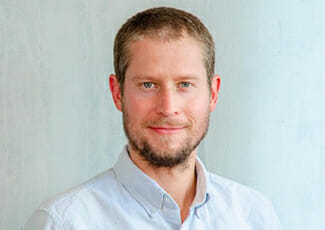Global Futures Scientists and Scholars

Sustainability scientists participate in NASEM events
Nancy Grimm presented on urban sustainability. Marty Anderies presented on adapting to shocks and surprise. Billie Lee Turner presented on sustainability science as a growing field of scholarship.

Applications open: NASEM early-career research fellowship
The NASEM Gulf Research Program is accepting applications for the 2021 GRP Early-Career Research Fellowship Track 1: Human Health and Community Resilience. Applications are due January 13.
Decision support tools and research workshop
Read the event recap, check out the action items, and affiliate your new or existing ORCID with ASU. Take 20 minutes to watch Phil Tarrant’s presentation on ASU’s research data support services.
New book: Urban infrastructure for 2100
Sustainability scientist Mikhail Chester has published a new book, Urban Infrastructure: Reflections for 2100, an edited volume imagining infrastructure transitions and goals at end-of-century.

UREx NYU lead to present at UNESCO event
Dec. 9: Rae Zimmerman, the NYU lead for UREx, will present a new UREx researcher-practitioner paper on GI and stormwater management as part of the "Innovative Initiatives 2" session.
Climate policy and action: The next four years
Dec. 18: Join us for a special interview by journalist and Global Futures Fellow Frank Sesno with former White House Senior Director for Energy and Climate Change John E. Morton.

ASU launches Sustainable Maryvale StoryMap
The tool demonstrates how we can localize the Sustainable Development Goals using six forms of Community Capital to redirect local systems toward community sustainability, and how this approach can be replicated in neighborhoods across the US and beyond.

Sustainability storytelling students premiere short-form documentaries
December 11, join sustainability scientist Peter Byck for a premiere of his students’ work this semester. The event format will be to showcase one film, then do a Q&A with the filmmakers, then repeat for the second film.
Call for proposals: 2021 Babbitt dissertation fellowships
Apply by March 1. The center invites applications from doctoral students who are conducting dissertation projects in fields that address the Babbitt Center’s primary interest areas in improving the integration of land use and water management and policy.
Applications open: Grad certificate in environmental communication and leadership
Sustainability scientist Leah Gerber will be teaching the required course BIO 578 in Spring 2021 and would like to reach a wider student audience, both with the course and the certificate.
Crow, Schlosser, Ellis join Foreign Policy dialogue on reimagining education
Dec. 10: Join Foreign Policy magazine in partnership with Arizona State University for a fascinating look at the future of higher education as a catalyzing force for meaningful social change.
ASU postdoctoral position in Public Interest Technology/Responsible Innovation
The project seeks to study three institutions (ASU, Howard University and Estrella Mountain Community College) to identify what they do and could do across their missions and functions to implement PIT comprehensively and strategically.